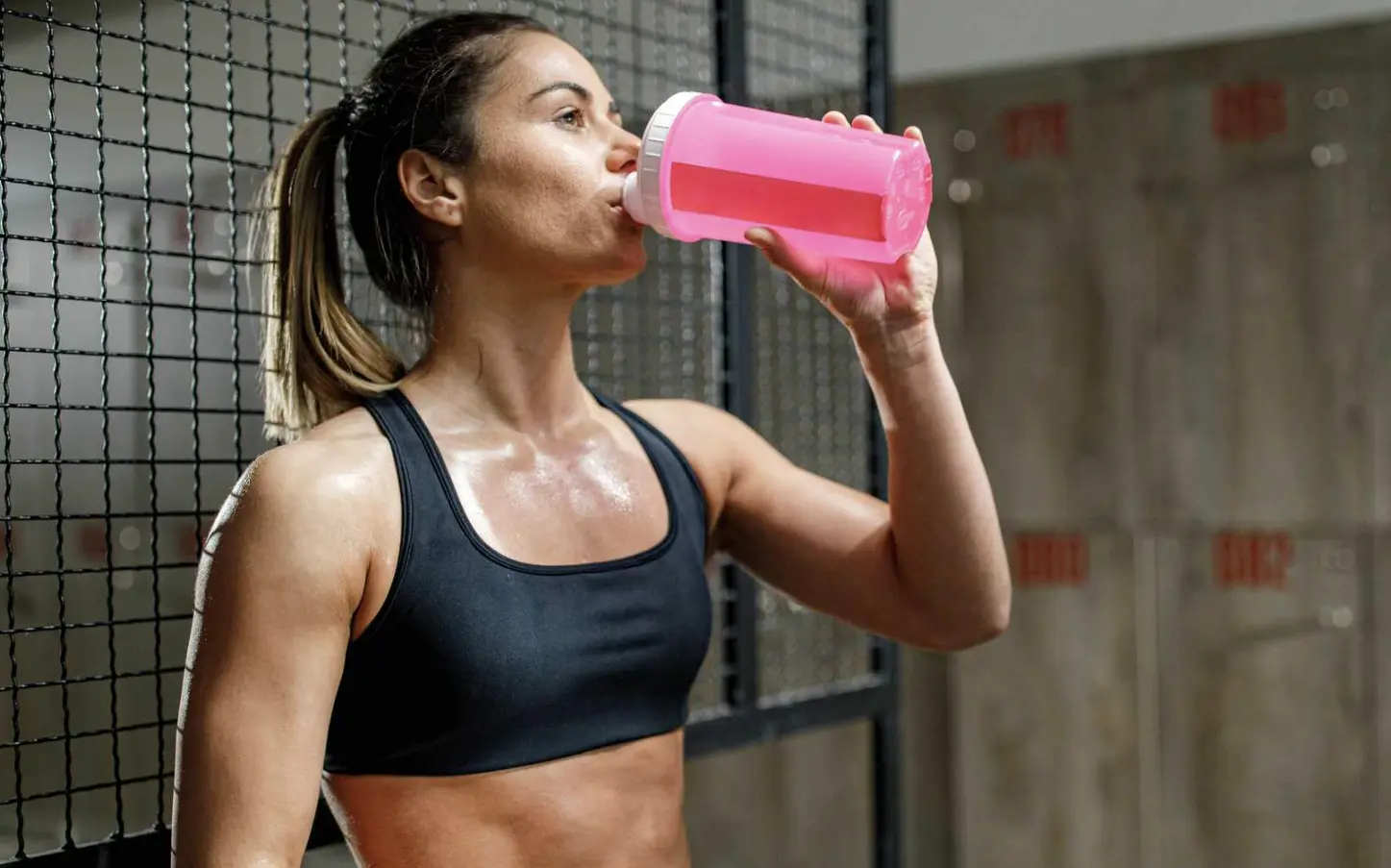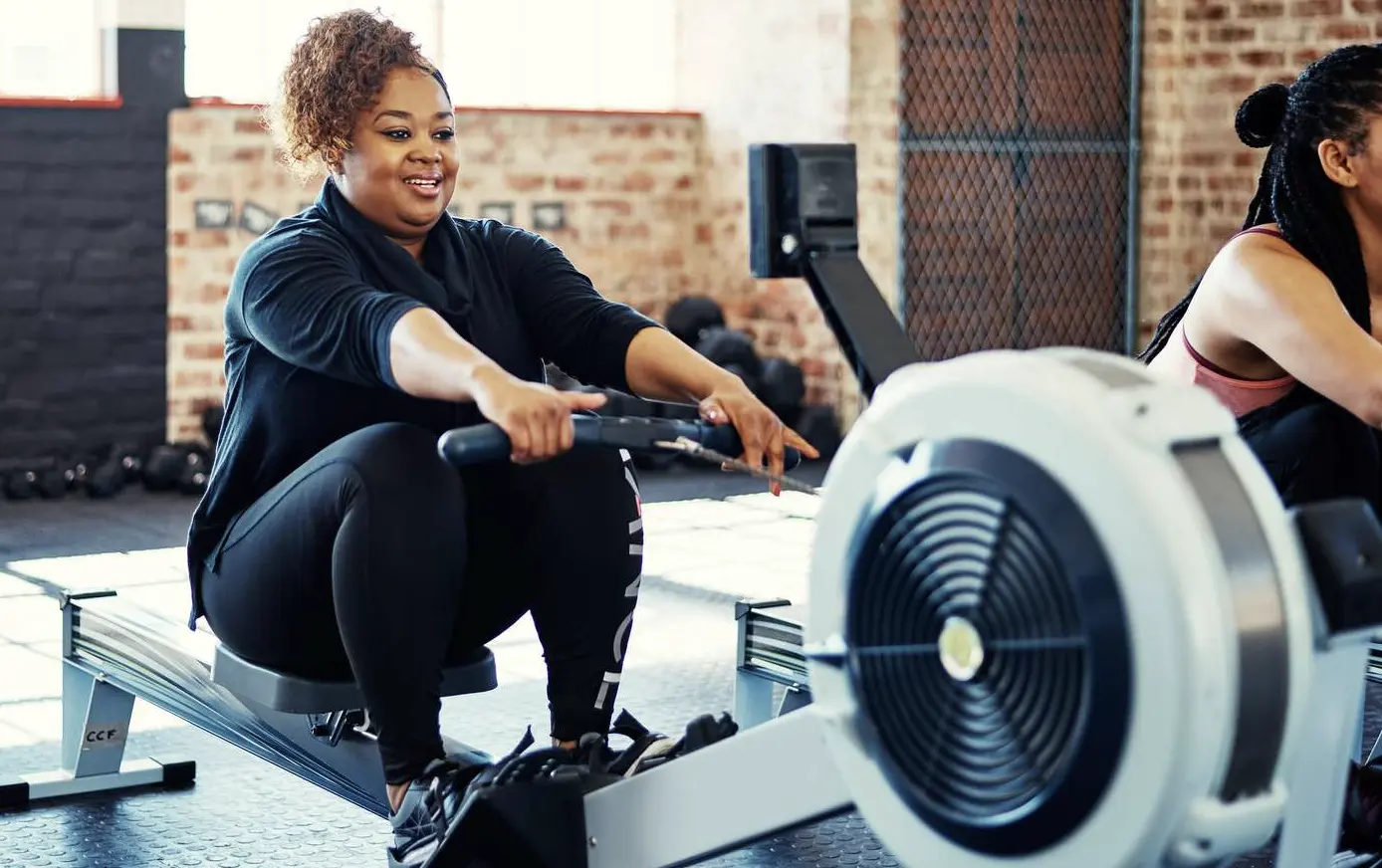Table of Contents
How to stay hydrated is a common concern for beginners to fitness, who are often faced with many questions regarding sports activities, including the topic of maintaining a drinking regime. Many people don’t know if it’s even possible to drink water during and after workouts, or if it’s necessary to achieve their goals. Therefore, this issue is worth examining in more detail.
Maintaining Proper Drinking Regime During Sports Activities
It is known that the human body on average consists of 60% water, and muscle fibers contain more of it than other tissues. Therefore, with a lack of fluid intake, dehydration of the body quickly occurs, which negatively affects all internal organs and slows down important biological processes.
During fitness classes, the whole body is actively involved in the work: blood circulation accelerates, and the temperature of organs and tissues rises. This results in the need to cool the body by losing water through sweating. If you do not replenish the fluid deficiency, then severe thirst arises, which in no case should be ignored.
Water is so important for the body that a lack of just 2% of fluid in the body already significantly reduces a person’s performance and the effectiveness of his fitness training. In this case, the decrease in strength indicators is about 20%, and aerobic endurance – 50%. Ensuring you are well-hydrated is essential not just for maintaining performance, but also for post workout recovery.
The Importance of Drinking Regime When Training for Fat Burning and Mass
Dehydration is especially dangerous because it causes an increase in blood density and a decrease in oxygen saturation of all organs and tissues of the body. And this has an extremely negative impact on the general condition of the body. If training is carried out with the goal of losing weight, then an incorrect drinking regime will lead to inhibition of the fat burning process. Drinking water to lose weight is essential as it supports metabolic functions and aids in breaking down fat.
The next dangerous factor of not having enough water is the increased load on the heart muscle, which is trying to pump viscous and thick blood through the network of blood vessels and distribute it evenly throughout all cells.
If training is carried out with the goal of gaining muscle mass, then drinking liquid is necessary for normal absorption of protein and the supply of amino acids to the muscles. Water deficiency slows down these processes and, accordingly, the growth of new muscle fibers. Therefore, proper drinking regime is an indispensable condition for the formation of a sculpted body.
In addition, regardless of fitness goals, during active physical activity various breakdown products accumulate in the body, for example, lactic acid, which causes muscle pain and decreased performance. Water helps remove all waste substances, supporting muscle recovery and reducing the risk of muscle cramps and soreness.
Quantitative and Qualitative Indicators of Water for Complete Fitness
During training, the correct drinking regime involves drinking approximately 100-200 ml of water in small sips every 15 minutes. At the same time, you need to drink just enough to quench your thirst and avoid stomach overfilling. Before exercising, you should also drink water. Experts advise drinking about 400-500 ml of pure water a few hours before training, and about 200-250 ml half an hour before it starts. At the end of active physical activity, you can drink as much as your body needs to replenish losses.
A universal drink for quenching thirst is ordinary clean drinking water without gas. Those who find it difficult to drink plain water can be advised to add lemon or other fruit juice to it. This will not only get rid of fluid deficiency, but also additionally nourish the body with vitamins and valuable microelements. However, in order not to cause stomach irritation, you should not abuse the juice: just add it in an amount of up to 50 ml per 300 ml of clean water.
As for sports drinks, during intense exercise or strength training for 45 minutes or more, it is worth choosing isotonic drinks – specially formulated balanced drinks with vitamins and minerals. Those that contain sodium will be especially beneficial. In addition to replenishing fluid losses during fitness training, they will also saturate the body with various valuable substances lost through sweat.
For those wanting to lose excess weight, drinks containing l-carnitine are beneficial as they accelerate fat burning. Additionally, l-carnitine helps remove waste products, improves the athlete’s endurance, and well-being. An important condition for the use of such drinks is to use them only on days of active training.
You should also pay attention to the temperature of the liquid and, if you are prone to colds, try to drink water only at room temperature. In summer, it may be a little cooler than in the cold season.
Proper drinking regimen does not involve drinking sugary carbonated drinks. Moreover, it is better not to drink even carbonated mineral water or to let the gas out of it first. Also, you should not replenish fluid loss with drinks with a high sugar content: sweet juices, dairy drinks, yogurt. After all, the body perceives them as food, and part of the effort necessary for muscle regeneration is spent on digesting these products.
Despite the apparent obviousness, it would not be amiss to recall that alcoholic drinks can nullify all efforts to exercise. Therefore, their use should be completely abandoned.
If you want to tighten problem areas, build muscle, or get rid of excess fat, you need to drink water. This is a prerequisite for active fitness. Maintaining the correct drinking regime will certainly make any workout easier, more active and more effective. Drinking water helps lose weight by boosting metabolism and aiding in the breakdown of fat cells.
Ways to Hydrate Quickly
To hydrate quickly, drink water at regular intervals and consider beverages with added electrolytes. Eating water-rich fruits and vegetables, such as cucumbers, oranges, and watermelon, can also boost hydration levels efficiently.
Recommended Water Intake in Liters
The recommended water intake varies based on factors such as age, gender, activity level, and climate. On average, it is suggested that women drink about 2.7 liters and men drink about 3.7 liters of water per day. Athletes or individuals engaging in intense physical activity may need more to compensate for water lost through sweat.
Mike is a Certified Personal Trainer and a lifelong fitness and nutrition fan. Mike has a strong passion for training his body to become the greatest version of himself and truly believes we should all strive to train our bodies to look and feel our best. Based in Toronto, Mike has been studying fitness, nutrition, and training for over 20 years.

